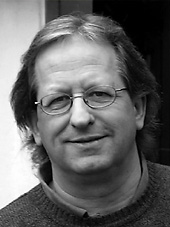February news
 Professor Stephen Houlgate
Professor Stephen Houlgate
My research focuses primarily on the thought of the German philosopher, G.W.F. Hegel. Hegel was born in 1770, the same year as Beethoven, and lived through the dramatic period of the French Revolution and Napoleonic Wars. He is famous for his account of “dialectic”, the process whereby a phenomenon can, surprisingly, turn into its opposite simply by being what it is. Hegel’s idea of dialectic influenced Marx in particular, who argued that freedom in capitalist society turns into a form of alienation for those who are not in control of the means of production.
I first encountered Hegel as a student in the 1970s and was impressed not only by his idea of dialectic, but also by his insight that our identity is inextricably bound up with that of others. I recall one of my lecturers insisting that, for Hegel, one cannot be oneself on one’s own but only in the company of other people. We can thus only be free if we recognise others as free and are recognised as free by them in turn. This idea struck me as profoundly true and still guides my thinking today.
I teach undergraduate modules on Spinoza & Leibniz (entitled “The Rationalists”) and on Hegel & Marx (entitled “Hegel in Context”). In the latter we study Hegel’s theory of recognition and his account of freedom. Is freedom the same as choice? What rights do we enjoy as free beings? What are the basic forms of human community that are essential to human freedom? Why do some forms of economic freedom lead to poverty? These are some of the questions we consider in the module, and students have a chance to write about them in their essays.
Studying Hegel and Marx is a stimulating and rewarding experience, and many undergraduates go on to study them further at MA and PhD level. Indeed, for some, such as myself, the study of Hegel and Marx can become a life-long passion.
